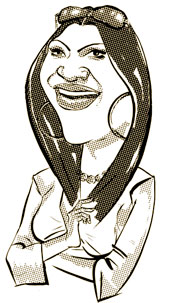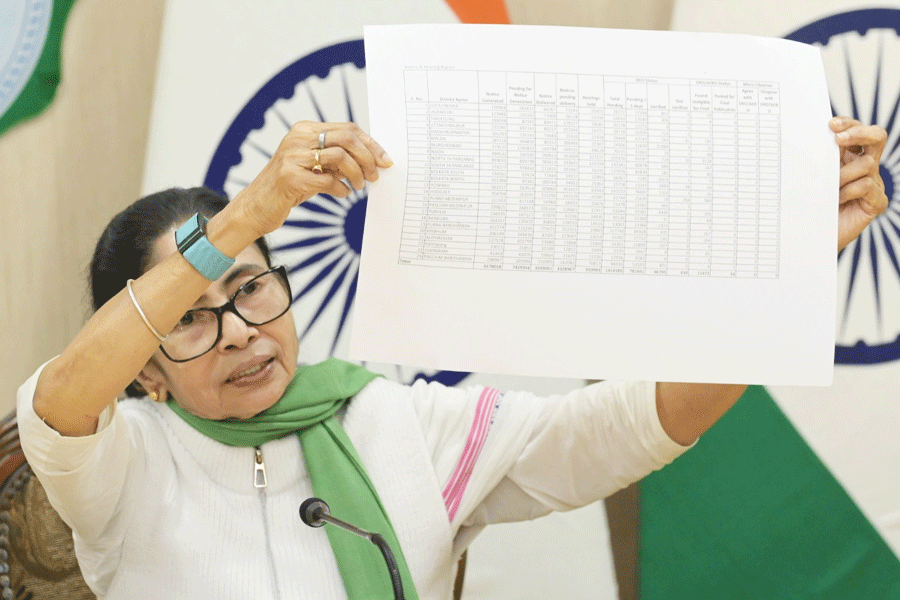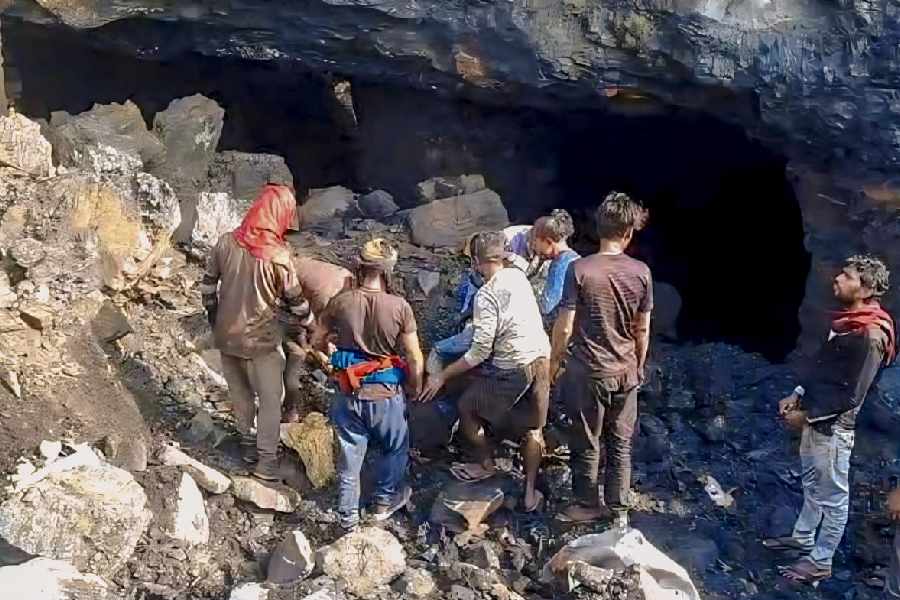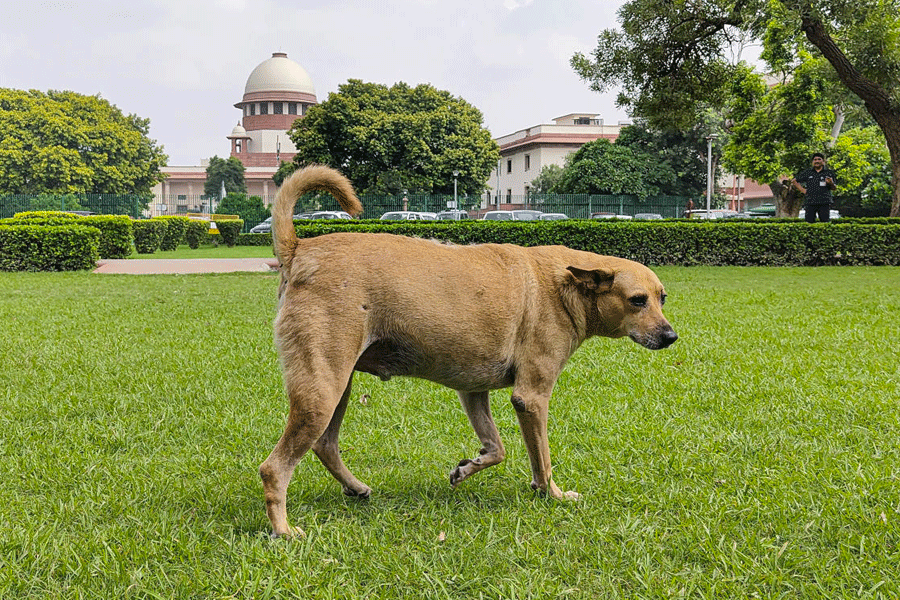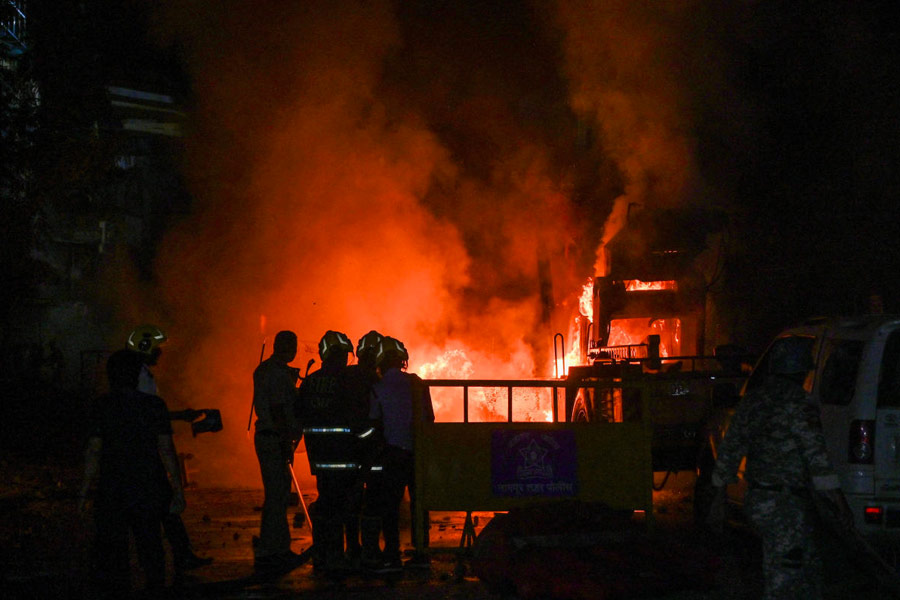 |
Traffic Signal opened to mixed reviews but its Noorie has grabbed critical attention which only makes Konkona Sen Sharma a tad wistful. A five-day shoot for ostensibly a cameo as Noorie, the self-willed sex worker that she set out to essay, turned out to be “so up there. It was not as small as I thought it would be,” she laments.
If she were to revisit her role as the ‘fancy’ of a fixated customer, she would have “prepped” better, especially her appearance. “I think I look awful,” she grimaces. “And sometimes when I think I look awful, I can’t think of anything else,” she says, peering into the mirror in her make-up van in between shots in Mumbai’s suburban Juhu, where she is emoting for Anurag Basu’s Metro .
So far Konkona (28) has not been known for her vanity, and there is nothing in her appearance that hints that she has succumbed to narcissism. Instead, it’s a professional vanity that competes with a self-admitted laziness. With 18 films to her credit, Sharma is convinced that actors are born, not trained, but the preparation for a role also heightens as the character gets into costume and make-up. Noorie should have looked the part better.
From tart to the girl next door, that’s Konkona. In Metro she plays Shruti, a repressed girl who blooms when she meets the character played by Irrfan Khan. A tale about four couples in frenetic, high-octane Mumbai, the film has been in the news because of Konkona’s screen sister Shilpa Shetty, whose UK forays are supposed to have delayed the film. If that is true, it is not evident on the sets where Basu chews a paan and looks into the monitor at Shruti biting mournfully into a pizza as a catchy Alvida, alvida plays on.
Over the next two days, Konkona goes about her scenes with a quiet efficiency. She is almost startling in her unstarriness. Her heart-shaped face can silently fill a dramatic frame but would not immediately grab attention in a crowded room. It was just as well that her director mother was around to spot the acting potential of her younger daughter when she was casting for the eponymous second half of Mr and Mrs Iyer. Koko, as she is known to family and friends, won the National Award for the role, but when first offered it, she was not sure she could do it.
Director-actor Aparna Sen was just as casually sure that she could, and her insight paid off when the mother-daughter scored double aces with the National Awards for best director and actress in 2003. Swapping the tedium of a masters degree in Delhi for a two-week stint in Chennai to learn the nuances of a Tam-Bram lifestyle was a no-brainer for Konkona, who gets a kick each time her name is preceded by the ‘National Award winner’ tag. Her first screen appearance was, however, as a child actor in Indira which was followed by character roles in a few films, till the breakthrough as Mrs Iyer.
“Lazy” when it comes to reading scripts, she instead trusts her instincts and sometimes entirely the director’s name or narration. She wanted to work with Naseeruddin Shah, so she accepted his directorial venture Yun Hota Toh Kya Hota and “ideally, I must like the cast.” The same qualities appealed to her when Metro was offered.
Basu comes calling. Shruti has to be casually dressed for the next scene and Konkona’s own T-shirt which says “I is (sic) a college girl” is just right for it. Konkona peers into the mirror. “Some days I think I look gorgeous; sometimes I think I look like shit.” She is not much of an off-screen dresser. “My mother is constantly mortified by the way I dress!”
Since then, however, her attitude towards her profession has evolved. She cries off any photographs taken waist-downwards, for she is in track pants. “Now I am learning on the job,” she says, on her way back to the van from a shot which the director was happy with but Konkona asked for another take. “I take acting more seriously now (laughs). I did not give it much respect earlier. I was not an actor till my third film.”
Considered often as most suited for non-masala fare, with raves earned for films such as 15 Park Avenue, Page 3 and Omkara, Konkona has a surprise in store for the audience in one of her under-production films. She has now accomplished her first song-dance routine for Pradeep Sarkar’s untitled venture where she and co-star Rani Mukherjee trill and prance on the ghats of Varanasi. Her updated CV will also list her as a vocalist for Rituparno Ghosh’s bilingual (Hindi, Bengali) film Sunglass, where she co-stars with Jaya Bachchan.
Would she do an item number? She looks at me as if I have gone mad. What if KJo (Karan Johar) offered her one? “If he did not have the good sense not to offer me one, I would have to say no.”
Her most difficult role, she says, was 15 Park Avenue where she was cast as a schizophrenic. Another challenge came in Omkara where director Vishal Bhardwaj sent her a CD with her entire dialogue in the local dialect. “The hard part was to unlearn the memorising in front of the camera.”
Just then her cellphone rings. Peering at the display, her face lights up with delight. “Excuse me, I think that is my mother,” she says. “And you are not my mama,” she mutters a beat later. It is Naseeruddin Shah. Turns out that both he and Aparna Sen have private numbers.
Konkona grew up in Calcutta where she studied at the Modern High School for Girls. Later she moved to Delhi where her father stays, and graduated in English from St Stephen’s College. Her parents divorced amicably. Her mother is her biggest critic, and her father, science writer and journalist, Mukul Sharma, is her least involved critic. “We have a very relaxed relationship. He does not make a point of going to see all my films. ‘Do you read all my articles,’ he asks me,” she laughs. Her sister, Kamalini, 38, is a homemaker and a mother of two in Cincinnati, where she is doing her masters in criminal justice.
Metro-girl Konkona, after Calcutta and Delhi, is now living in Mumbai. “I have a lot of work here.” She has rented an apartment in Yari Road which houses her collection of dabbas (little boxes). “I am crazy about dabbas. Apart from that I am not a compulsive shopper.” Obsessive about cleaning and efficiency, she says in Bengali, “I have chhuchibai (one who is a compulsive washer), I can be very pit-pitay, (finicky),” she says looking around to see if her van requires any cleaning up. “I am really quite anal (psychology lingo for overly orderly, compulsive),” she rounds off apologetically.
She is also very diplomatic and has evidently been brought up to be polite. She signs off on her sms response to interview requests with her first name appended each time. And when faced with questions she does not like, such as her relationship with actor Ranvir Sheorey, her response is an unfailingly polite “I am not going to answer that question.”
Konkona finished Naamkaron (Bengali), a 15-minute short film about two pickpocket sisters which was screened at the Calcutta Film Festival last year, and finds time to read. Left to herself, she would snack on churan and read; currently Houdini Girl and The Icarus Girl travel with her on shoots.
Looking at where she is currently, Konkona does not feel very successful, nor is she surprised at being taken seriously as an actor. “I am not very aware of it a lot of the time.”
Getting work is a big deal for her and since they are piling up at her door step, Konkona has finally acquired a secretary: Tiwariji, a wiry gent, who enters her make-up van, beams and quickly runs through the short-term agenda. Sound bytes for a TV channel’s forthcoming film awards show, the schedule for the month, chai-coffee pleasantries later, the affable Tiwariji exits. “I am bad at talking money and if somebody is bechara enough I will do it for free. I have ended up working for a pittance in most of my films,” admits Konkona.
When it comes to film scripts, though, she lets her instinct guide her. “I listen to instinct a lot.”
So far it seems to have served her well.

